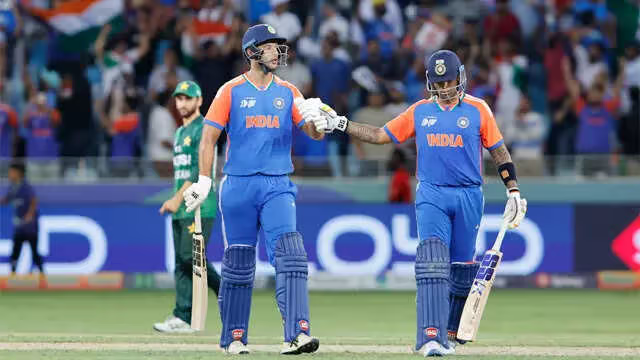India’s Asia Cup handshake controversy sparks ICC debate
- September 15, 2025
- 0

India’s recent Asia Cup victory over Pakistan has become the center of an unexpected controversy, not for what happened during the match, but for what followed immediately after. The Indian side, captained by Suryakumar Yadav, chose not to participate in the traditional post-match handshake with their opponents. The decision, reportedly guided by instructions from both the government and the Board of Control for Cricket in India (BCCI), has raised questions about sportsmanship and potential breaches of cricket’s code of conduct.
In international cricket, it is customary for players from both teams to shake hands at the conclusion of a match. This gesture is widely regarded as a symbol of mutual respect and acknowledgment of fair play, regardless of the result on the field. The absence of this ritual during such a high-profile encounter immediately drew attention and sparked debate among fans and officials alike.
Reports indicate that the Indian players refrained from handshakes based on directives issued by their governing bodies. Both government advisories and BCCI instructions were cited as reasons behind this unusual step. While no player has publicly elaborated on the specifics of these directives, their adherence suggests that the decision was institutional rather than individual.
The International Cricket Council (ICC) promotes its “Spirit of Cricket” guidelines as a cornerstone of conduct in the sport. These principles emphasize respect between players, officials, and fans, extending beyond just following rules on the field. By skipping handshakes, critics argue that India may have acted contrary to these values, potentially opening the door to disciplinary scrutiny under ICC regulations.
The incident did not go unnoticed by Pakistan’s camp. Their coach expressed dissatisfaction with India’s actions and subsequently lodged a formal protest regarding the matter. This move underscores how seriously teams view gestures tied to sportsmanship, particularly in contests that already carry significant competitive and cultural weight. The protest adds an official dimension to what might otherwise have remained a symbolic disagreement.
If governing bodies determine that India’s decision constitutes a violation of cricketing norms or ICC guidelines, penalties could follow. Such outcomes might range from warnings to more formal sanctions depending on how regulators interpret the situation. Beyond immediate consequences, this episode could also influence how future matches between these two sides are managed in terms of protocol and player interactions.
The controversy surrounding India’s refusal to engage in post-match handshakes highlights how symbolic gestures can carry weight far beyond tradition alone. While players often focus primarily on performance within the boundary lines, actions taken after play can resonate just as strongly with audiences and officials alike. Whether or not sanctions are imposed, this incident has already sparked broader discussion about balancing institutional directives with cricket’s longstanding emphasis on mutual respect and camaraderie across teams.